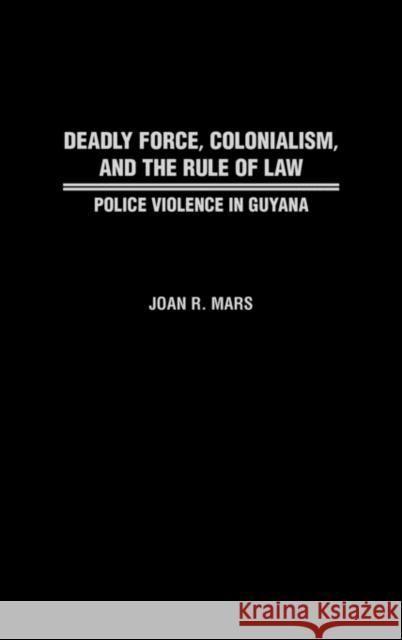Deadly Force, Colonialism, and the Rule of Law: Police Violence in Guyana » książka
Deadly Force, Colonialism, and the Rule of Law: Police Violence in Guyana
ISBN-13: 9780313311048 / Angielski / Twarda / 2002 / 224 str.
Deadly Force, Colonialism, and the Rule of Law: Police Violence in Guyana
ISBN-13: 9780313311048 / Angielski / Twarda / 2002 / 224 str.
(netto: 361,12 VAT: 5%)
Najniższa cena z 30 dni: 376,07 zł
ok. 30 dni roboczych
Bez gwarancji dostawy przed świętami
Darmowa dostawa!
In post-colonial countries such as Guyana, the legacy of colonialism and its influence on policing and society is of crucial significance in developing an explanation for police violence and police-caused homicide. Mars applies a contextual approach, grounded in the conflict theoretical perspective, to explain and understand variations in police violence over time, and she extends her study to include the social, political, and legal structure in which such actions are embedded. Her findings support the notion that police violence is a function of decades of coercive state rule under British colonialism, as well as the state's legitimization of violence in police work.
In this first study on police violence and homicide in Guyana, Mars presents and analyzes data covering a 14-year period. She also provides comparative and descriptive information on the use of excessive and deadly force by the police, and, in addition, discusses laws relating to such incidents. Mars finds little support for the community violence hypothesis in reference to Guyana and concludes instead that the level of violence in the community and the everyday dangers of police work does not significantly influence the rates of police-caused homicide in that country.











